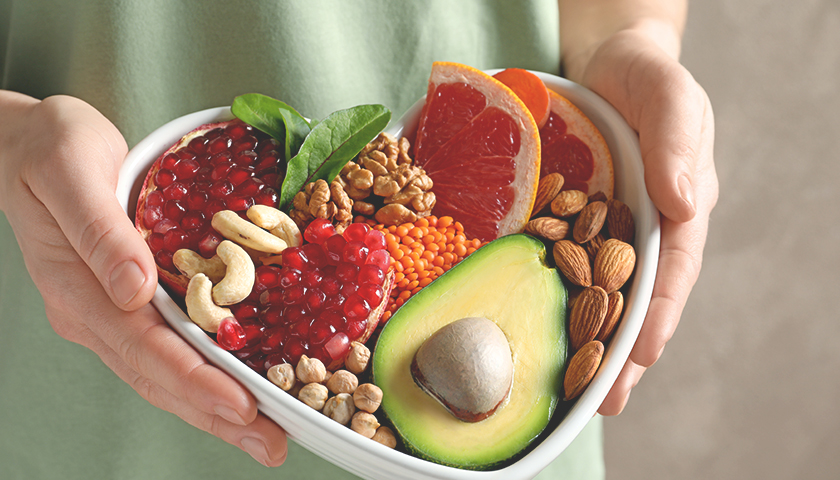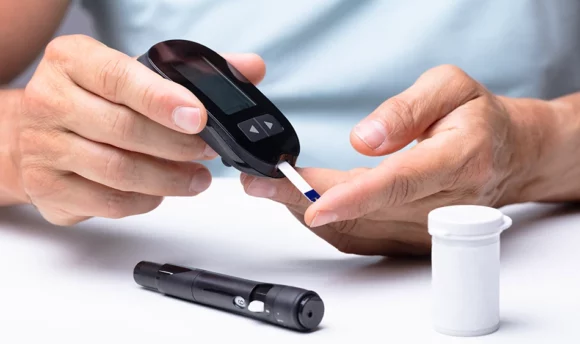Can Keto Cause High Blood Pressure? A Closer Look
The keto diet comes with a great health benefits but it has some drawbacks as well. A lot of people are curious if ketogenic diet might cause a higher than usual blood pressure.

The ketogenic diet is favored among many for shedding weight and managing medical conditions.
The low-carb, high-fat diet is said to lessen the risk of cardiovascular problems like obesity and high blood pressure and lower low-density lipoprotein cholesterol levels, or “bad” cholesterol.
As many partakers experience lower blood pressure, it’s possible that keto can raise it.
High blood pressure or hypertension means that the blood pressure against your artery walls is unusually high, leading to various health disorders. It’s usually treated with a healthy diet, regular exercise, and blood pressure medication in some people. But can the keto diet be the cause of high blood pressure?
Can Keto Cause High Blood Pressure?
Generally, research links the keto diet to low blood pressure. But as every person’s body adapts differently to keto, lowering blood pressure is not a guaranteed outcome.
In most cases, it comes down to what you eat on keto. We all know keto focuses on a high-fat diet, but your eating plan should still include essential nutrients from whole foods and healthy fat.
If you’re filling up on processed meats and not getting enough veggies, an imbalance of sodium and potassium may raise blood pressure.
Potassium is found in many fruits and vegetables. With a potassium deficiency, your kidneys hold more sodium, increasing blood pressure. Meanwhile, the keto diet increases sodium loss through frequent urination. A sodium deficiency may also contribute to hypertension.
Ultimately, increasing your potassium intake and limiting your salt intake can help control blood pressure.
So, despite the freedom to eat a high-fat diet, your diet must balance out.
It’s also possible that the metabolic switch during keto releases hormones that may increase your blood pressure.
Is Keto Good for High Blood Pressure?
As keto promotes weight loss, it tends to intervene with metabolic syndrome, triglyceride levels, blood glucose levels, insulin sensitivity, and blood pressure.
It’s thought to be especially beneficial for people with obesity and diabetes.
Keto promotes weight loss by forcing your body to burn fat instead of carbs. When you cut carbs (less than 50g a day), you run out of fuel from glucose stores. So, your body starts to break down fat for energy. This is known as ketosis, and it’s what helps you drop fat.
It also helps you lose weight with appetite suppression, increased energy, and lower insulin levels. The combination of these potential factors can contribute to combating hypertension.
Can You Take Keto Supplements With High Blood Pressure?
In general, keto supplements are not recommended for hypertension or those at greater risk of heart disease. They have the potential to increase blood pressure further, which is dangerous.
Keto supplements are diet pills that help your body reach the metabolic state of ketosis, where you burn fat for energy instead of carbs.
Most keto supplements contain exogenous ketones that promote ketosis faster. They can also help you remain in ketosis if you eat something not keto-friendly.
How to Do Keto Right? 4 Easy-to-Follow Tips
For success with keto, it’s vital to monitor what you eat to ensure you get adequate calories from whole, nutritious foods.
Often, the keto diet falls into two categories: clean keto and dirty keto. Here’s how to do keto the right way with a clean approach.
#1 Eat healthy fats
With a high-fat eating plan, it’s easy to eat the wrong things. Cut out bad fat and take your fat from healthy sources like olive oil, coconut oil, fatty fish, avocados, and butter.
#2 Eat high-fat proteins
Protein intake is kept moderate on the ketogenic diet. It’s best to source your limited protein from high-fat, whole foods. Examples include grass-fed beef, chicken, turkey, salmon, eggs, cheese, nuts, and seeds.
#3 Eat fresh, low-carb vegetables
This low carbohydrate diet is more beneficial when taking carbs from wholesome sources. Decipher between high-carb and low-carb veggies to ensure you intake vitamins, minerals, and antioxidants without overdoing it.
Leafy greens, broccoli, cauliflower, asparagus, and tomatoes are great choices.
#4 Try an app
Try one of the leading keto diet apps that assists those who have tried and failed the keto diet. Most of such apps provides:
- A custom meal plan
- Workout plan
- Progress tracker to monitor your keto diet to achieve optimal results
Overall, apps make following a high-fat, low-carb diet easier to manage, whether you’re hoping to lose weight or get medical conditions under control.
A Word From Nutritionist
If left untreated, hypertension can put you at risk of heart attack, stroke, or other medical complications.
As it doesn’t have noticeable symptoms, you must have your doctor measure your blood pressure to reveal your systolic blood pressure (the pressure when your heart beats) and diastolic blood pressure (the pressure between heartbeats).
The American Heart Association separates the numbers into categories that include average blood pressure, elevated blood pressure, and high blood pressure.
Keto is a low-carb diet that helps people lose weight. If you’re overweight or obese, weight loss can lower your blood pressure. For this reason, keto is generally considered an efficient treatment for hypertension.
However, for some people, it may adversely increase blood pressure. While more research is required, the risk of higher blood pressure on keto may be due to an electrolyte imbalance.
In that case, limiting your salt intake and increasing potassium intake can help get things back under control.
Before attempting keto, it’s essential to consult your doctor or dietitian to ensure it is safe for you, especially if you already suffer from hypertension and are taking blood pressure medications.
Conclusion
Many risk factors can cause blood pressure to rise, including smoking cigarettes, alcoholism, and a lack of exercise. But for many people, keto and other low-carb diets can help regulate it.
Unfortunately for some, it’s possible that keto may trigger hypertension. More research is required, but if you’re attempting keto, consult your doctor to discuss the potential impact on blood pressure.

















































 Select your language:
Select your language: 








